

Articles, advice and tutorials from the Essay team
Writing Philosophy
How to write with Essay
Advanced Features
How to use the advanced features of Essay
Tutorial Articles
A collection of articles to help a writer follow Dr. Jordan B Peterson's essay writing process using essay.app

How to Write an Essay - The Jordan Peterson Writing Template
qualiablog.com
79.7K reads
Problem Solving
Communication
Reading & Writing
Personal Development

Learn more about problemsolving with this collection
Productivity Systems
How to set achievable goals
How to create and stick to a schedule
How to break down large projects into smaller manageable tasks
Discover 46 similar ideas in
It takes just
6 mins to read
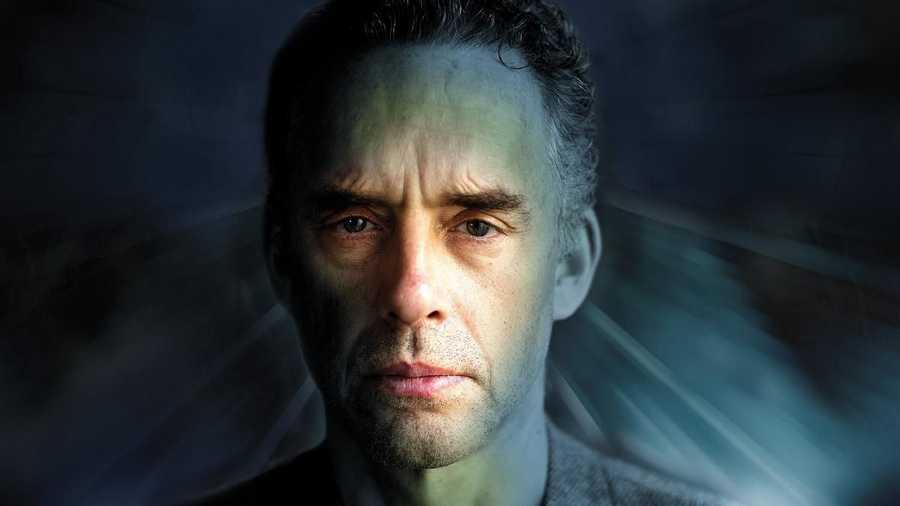
JORDAN PETERSON
8.78K reads
The Levels of Resolution
An essay exists at multiple levels:
- The choice of words
- The formation of sentences
- The arrangement of sentences in a paragraph
- The arrangement of paragraphs in a logical progression, beginning to end
- The essay as a whole
A good essay works at every one of those levels simultaneously.
6.98K reads
Step 1: Choose Topic, Read & Take Notes
Writing begins with these 3 steps:
- Pick a topic: because your essay should answer a central question.
- Make a reading list: You should aim to read 5-10 books before you write an essay. And plenty of online sources.
- Take Notes: of everything that catches your attention.
6.91K reads
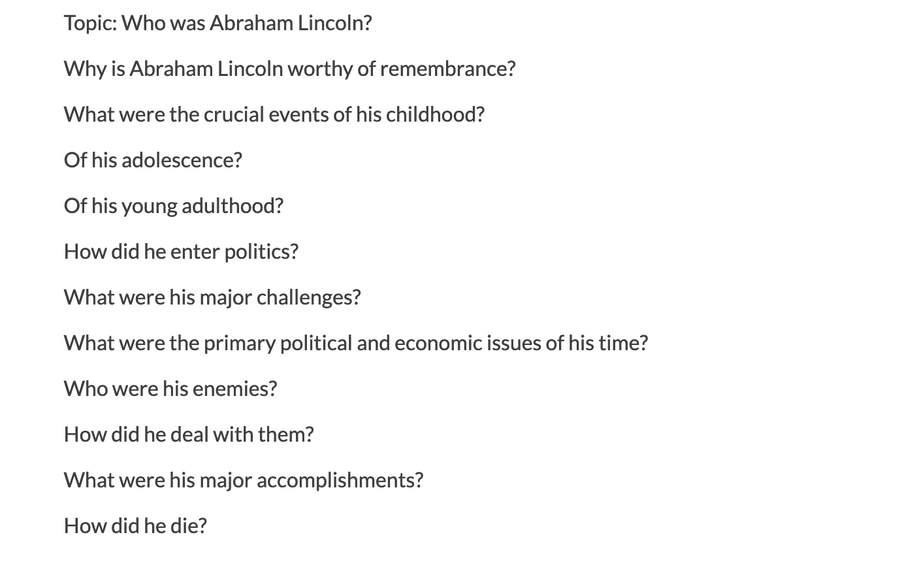
Step 2: Make an Outline
The outline is the skeleton of the essay and provides its structure.
An essay that is 1,000 words requires a 10 sentence outline.
7.37K reads
Jordan Peterson's Rules of Thumb for Note Taking
- Take note of anything that catches your attention.
- Don't highlight or underline . (That doesn't work.)
- Read a bit, then write down what you have learned or any questions that arise.
- Take about 2 to 3 times as many notes by word as you will need for your essay.
6.71K reads
Step 3: Write Paragraphs
Use your notes. You can work back and forth between changing the outline and your sentences.
6.33K reads
Jordan Peterson's Rules of Thumb for Writing
- Your first draft should be 25% longer than your final draft. This will give you material to throw away during the editing process.
- Each paragraph in your final draft should be about 10 sentences or 100 words long. If your paragraph is much shorter than this, that is a sign that your idea isn't substantial enough. If your paragraph is much longer, it's a sign you have multiple ideas going and need to split them into separate paragraphs.
5.85K reads
Step 4: Edit Your Sentences
Working paragraph by paragraph, take each one of your sentences and write a better version of it.
Peterson advises you place each sentence on its own line and write the revised version underneath.
5.27K reads
Jordan Peterson's Editing Advice
- Make your sentences shorter , eliminating all unnecessary words. U should cut each sentence by 15-25%.
- Make sure each word is precisely the right word to express your meaning. Don't use vocabulary you haven't fully mastered.
- Read each sentence aloud and listen to how it sounds. If it sounds awkward, try saying it a different way, then write that down.
4.82K reads
Steps 5&6: Reorder Sentences & Paragraphs
Within each paragraph, see if your sentences are in the best possible order. Get rid of any sentences that are no longer necessary.
Same for paragraphs: They should help the essay flow in the best, most logical progression. Move the corresponding paragraphs until they are in the most appropriate order.

Step 7: Make a NEW Outline
After finishing your first draft: write a NEW outline of 10-15 sentences. DON'T LOOK BACK AT YOUR ESSAY WHILE YOU DO THIS!!!
The purpose of this step is to force yourself to reconstruct your argument from memory. Generally, when you remember something, you simplify it and retain only what is most important. Doing this, you will remove what is useless and keep what is vital.
Step 8,9&10: Repeat Editing & Add References & Format
To continue improving your essay, you can repeat the process of re-writing and re-ordering your sentences, re-ordering your paragraphs, and re-outlining. Add references, links, biography.
Then format it: 12pt font, tabbed idents.
4.87K reads
Jordan Peterson Writing Template
For Peterson, writing is not just a matter of fulfilling an assignment; it is a skill with deeply existential consequences.
6.99K reads
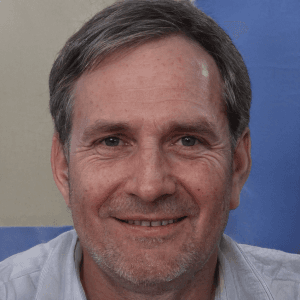
Never stop learning new things, no matter how old you are.
Related collections

Managing Email Effectively
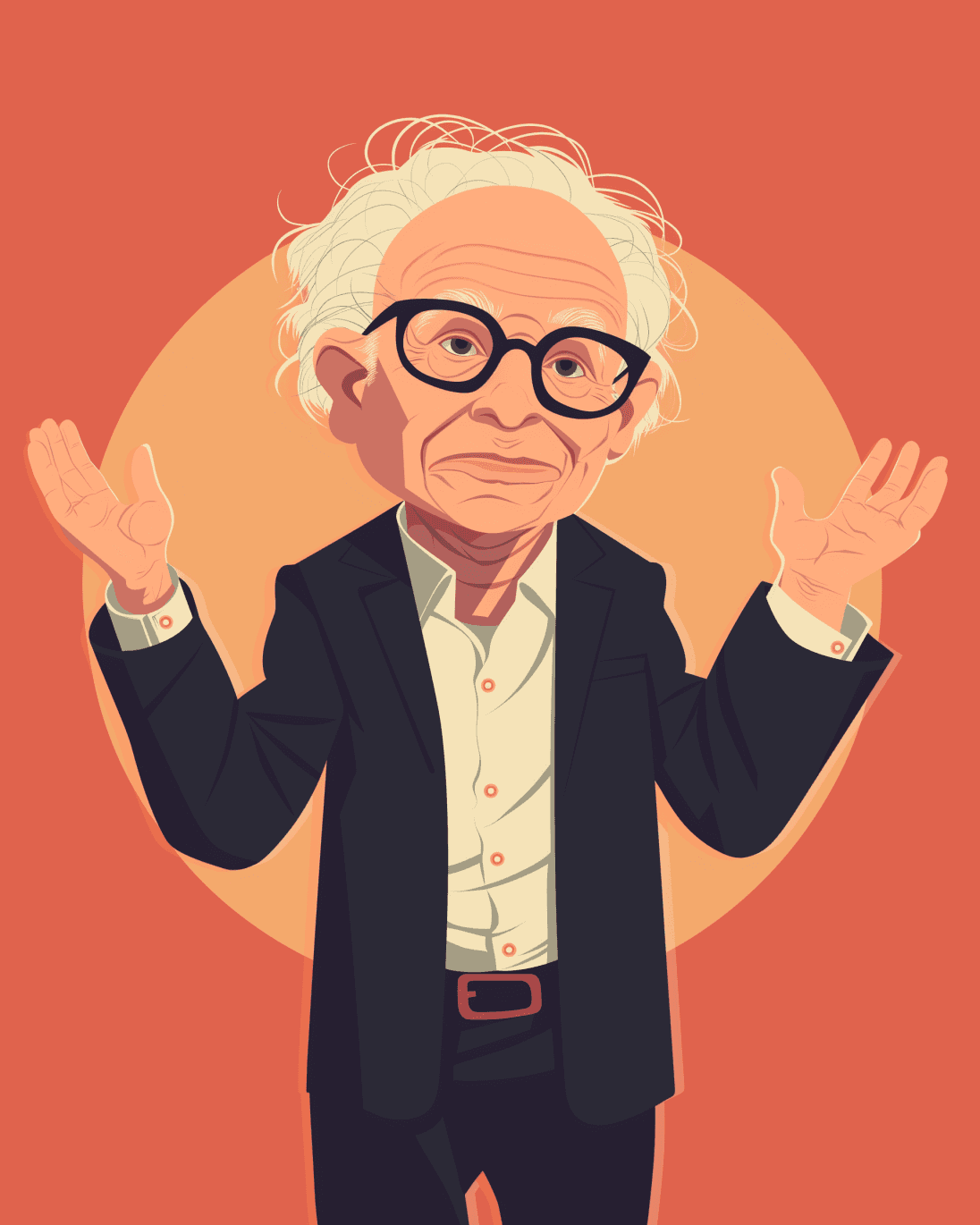
The Art of Decision-Making

7 Books on Habits
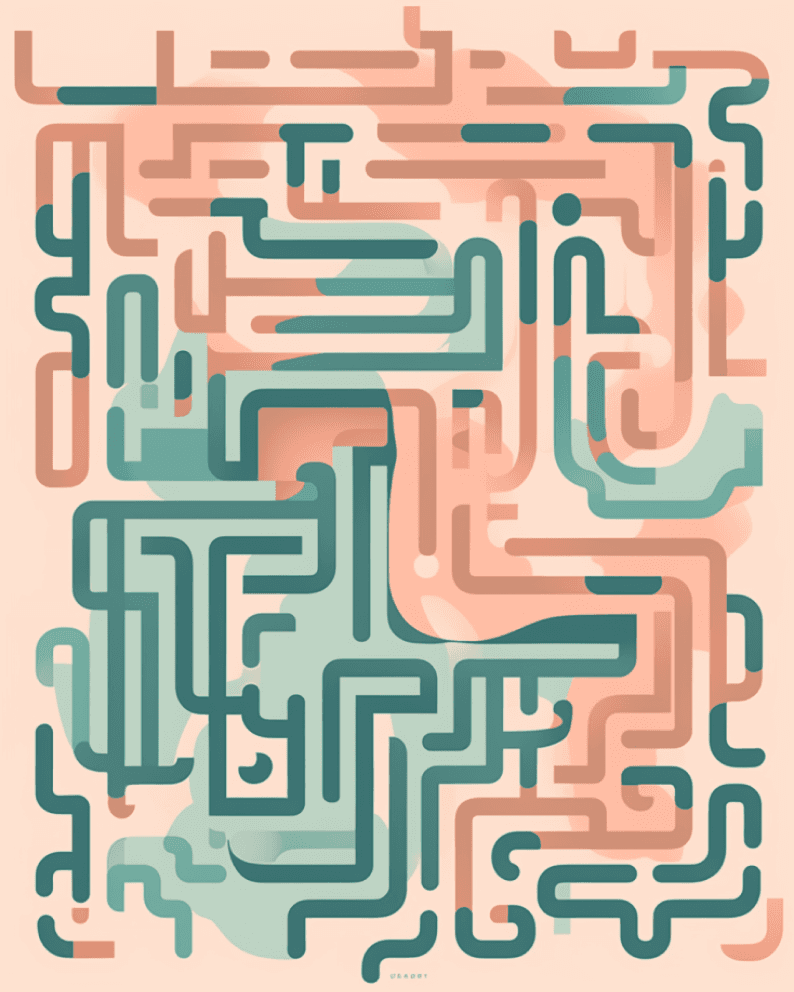
Behavioral Economics, Explained
More like this

How to Write Strong Paragraphs
grammarly.com
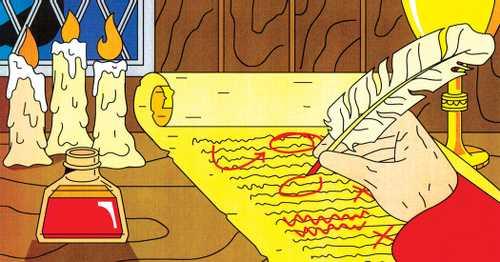
How to Edit Your Own Writing
nytimes.com

How to Write Usefully
paulgraham.com
Read & Learn
without deep stash
with deep stash
Access to 200,000+ ideas
Access to the mobile app
Unlimited idea saving & library
Unlimited history
Unlimited listening to ideas
Downloading & offline access
Personalized recommendations
Supercharge your mind with one idea per day
Enter your email and spend 1 minute every day to learn something new.
I agree to receive email updates
Collections
- Skip to main content
- Keyboard shortcuts for audio player
The Writing Assignment That Changes Lives
Anya Kamenetz

Why do you do what you do? What is the engine that keeps you up late at night or gets you going in the morning? Where is your happy place? What stands between you and your ultimate dream?
Heavy questions. One researcher believes that writing down the answers can be decisive for students.
He co-authored a paper that demonstrates a startling effect: nearly erasing the gender and ethnic minority achievement gap for 700 students over the course of two years with a short written exercise in setting goals.
Jordan Peterson teaches in the department of psychology at the University of Toronto. For decades, he has been fascinated by the effects of writing on organizing thoughts and emotions.
Experiments going back to the 1980s have shown that "therapeutic" or "expressive" writing can reduce depression, increase productivity and even cut down on visits to the doctor.
"The act of writing is more powerful than people think," Peterson says.
Most people grapple at some time or another with free-floating anxiety that saps energy and increases stress. Through written reflection, you may realize that a certain unpleasant feeling ties back to, say, a difficult interaction with your mother. That type of insight, research has shown, can help locate, ground and ultimately resolve the emotion and the associated stress.
At the same time, "goal-setting theory" holds that writing down concrete, specific goals and strategies can help people overcome obstacles and achieve.
'It Turned My Life Around'
Recently, researchers have been getting more and more interested in the role that mental motivation plays in academic achievement — sometimes conceptualized as "grit" or "growth mindset" or "executive functioning."
Peterson wondered whether writing could be shown to affect student motivation. He created an undergraduate course called Maps of Meaning. In it, students complete a set of writing exercises that combine expressive writing with goal-setting.
Students reflect on important moments in their past, identify key personal motivations and create plans for the future, including specific goals and strategies to overcome obstacles. Peterson calls the two parts "past authoring" and "future authoring."
"It completely turned my life around," says Christine Brophy, who, as an undergraduate several years ago, was battling drug abuse and health problems and was on the verge of dropping out. After taking Peterson's course at the University of Toronto, she changed her major. Today she is a doctoral student and one of Peterson's main research assistants.
In an early study at McGill University in Montreal, the course showed a powerful positive effect with at-risk students, reducing the dropout rate and increasing academic achievement.
Peterson is seeking a larger audience for what he has dubbed "self-authoring." He started a for-profit company and is selling a version of the curriculum online. Brophy and Peterson have found a receptive audience in the Netherlands.
At the Rotterdam School of Management, a shortened version of self-authoring has been mandatory for all first-year students since 2011. (These are undergraduates — they choose majors early in Europe).
The latest paper, published in June, compares the performance of the first complete class of freshmen to use self-authoring with that of the three previous classes.
Overall, the "self-authoring" students greatly improved the number of credits earned and their likelihood of staying in school. And after two years, ethnic and gender-group differences in performance among the students had all but disappeared.
The ethnic minorities in question made up about one-fifth of the students. They are first- and second-generation immigrants from non-Western backgrounds — Africa, Asia and the Middle East.
While the history and legacy of racial oppression are different from that in the United States, the Netherlands still struggles with large differences in wealth and educational attainment among majority and minority groups.
'Zeroes Are Deadly'
At the Rotterdam school, minorities generally underperformed the majority by more than a third, earning on average eight fewer credits their first year and four fewer credits their second year. But for minority students who had done this set of writing exercises, that gap dropped to five credits the first year and to just one-fourth of one credit in the second year.
How could a bunch of essays possibly have this effect on academic performance? Is this replicable?
Melinda Karp is the assistant director for staff and institutional development at the Community College Research Center at Teachers College, Columbia University. She leads studies on interventions that can improve college completion. She calls Peterson's paper "intriguing." But, she adds, "I don't believe there are silver bullets for any of this in higher ed."
Peterson believes that formal goal-setting can especially help minority students overcome what's often called "stereotype threat," or, in other words, to reject the damaging belief that generalizations about ethnic-group academic performance will apply to them personally.
Karp agrees. "When you enter a new social role, such as entering college as a student, the expectations aren't always clear." There's a greater risk for students who may be academically underprepared or who lack role models. "Students need help not just setting vague goals but figuring out a plan to reach them."
The key for this intervention came at crunch time, says Peterson. "We increased the probability that students would actually take their exams and hand in their assignments." The act of goal-setting helped them overcome obstacles when the stakes were highest. "You don't have to be a genius to get through school; you don't even have to be that interested. But zeroes are deadly."
Karp has a theory for how this might be working. She says you often see at-risk students engage in self-defeating behavior "to save face."
"If you aren't sure you belong in college, and you don't hand in that paper," she explains, "you can say to yourself, 'That's because I didn't do the work, not because I don't belong here.' "
Writing down their internal motivations and connecting daily efforts to blue-sky goals may have helped these young people solidify their identities as students.
Brophy is testing versions of the self-authoring curriculum at two high schools in Rotterdam, and monitoring their psychological well-being, school attendance and tendency to procrastinate.
Early results are promising, she says: "It helps students understand what they really want to do."
We will keep fighting for all libraries - stand with us!
Internet Archive Audio

- This Just In
- Grateful Dead
- Old Time Radio
- 78 RPMs and Cylinder Recordings
- Audio Books & Poetry
- Computers, Technology and Science
- Music, Arts & Culture
- News & Public Affairs
- Spirituality & Religion
- Radio News Archive

- Flickr Commons
- Occupy Wall Street Flickr
- NASA Images
- Solar System Collection
- Ames Research Center

- All Software
- Old School Emulation
- MS-DOS Games
- Historical Software
- Classic PC Games
- Software Library
- Kodi Archive and Support File
- Vintage Software
- CD-ROM Software
- CD-ROM Software Library
- Software Sites
- Tucows Software Library
- Shareware CD-ROMs
- Software Capsules Compilation
- CD-ROM Images
- ZX Spectrum
- DOOM Level CD

- Smithsonian Libraries
- FEDLINK (US)
- Lincoln Collection
- American Libraries
- Canadian Libraries
- Universal Library
- Project Gutenberg
- Children's Library
- Biodiversity Heritage Library
- Books by Language
- Additional Collections

- Prelinger Archives
- Democracy Now!
- Occupy Wall Street
- TV NSA Clip Library
- Animation & Cartoons
- Arts & Music
- Computers & Technology
- Cultural & Academic Films
- Ephemeral Films
- Sports Videos
- Videogame Videos
- Youth Media
Search the history of over 866 billion web pages on the Internet.
Mobile Apps
- Wayback Machine (iOS)
- Wayback Machine (Android)
Browser Extensions
Archive-it subscription.
- Explore the Collections
- Build Collections
Save Page Now
Capture a web page as it appears now for use as a trusted citation in the future.
Please enter a valid web address
- Donate Donate icon An illustration of a heart shape
Essay Writing Guide - Jordan Peterson
Bookreader item preview, share or embed this item, flag this item for.
- Graphic Violence
- Explicit Sexual Content
- Hate Speech
- Misinformation/Disinformation
- Marketing/Phishing/Advertising
- Misleading/Inaccurate/Missing Metadata
plus-circle Add Review comment Reviews
Download options, in collections.
Uploaded by Cbracket Dash on December 3, 2022
SIMILAR ITEMS (based on metadata)
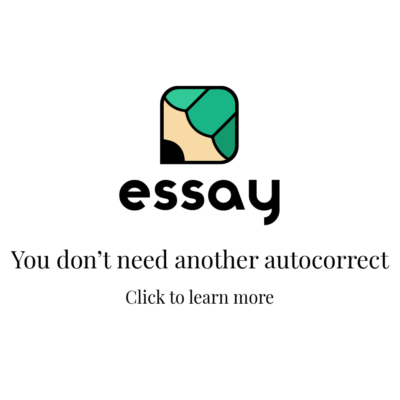
https://essay.app/
© 2023 Jordan Peterson
Subscribe To My Newsletter
Join ‘Mondays of Meaning’ Get updates and notifications about new articles, videos, and more
- Share full article
Advertisement
Supported by
Daniel C. Dennett, Widely Read and Fiercely Debated Philosopher, 82, Dies
Espousing his ideas in best sellers, he insisted that religion was an illusion, free will was a fantasy and evolution could only be explained by natural selection.

By Jonathan Kandell
Daniel C. Dennett, one of the most widely read and debated American philosophers, whose prolific works explored consciousness, free will, religion and evolutionary biology, died on Friday in Portland, Maine. He was 82.
His death, at Maine Medical Center, was caused by complications of interstitial lung disease, his wife, Susan Bell Dennett, said. He lived in Cape Elizabeth, Maine.
Mr. Dennett combined a wide range of knowledge with an easy, often playful writing style to reach a lay public, avoiding the impenetrable concepts and turgid prose of many other contemporary philosophers. Beyond his more than 20 books and scores of essays, his writings even made their way into the theater and onto the concert stage.
But Mr. Dennett, who never shirked controversy, often crossed swords with other famed scholars and thinkers.
An outspoken atheist, he at times seemed to denigrate religion. “There’s simply no polite way to tell people they’ve dedicated their lives to an illusion,” he said in a 2013 interview with The New York Times .
According to Mr. Dennett, the human mind is no more than a brain operating as a series of algorithmic functions, akin to a computer. To believe otherwise is “profoundly naïve and anti-scientific,” he told The Times.
For Mr. Dennett, random chance played a greater role in decision-making than did motives, passions, reasoning, character or values. Free will is a fantasy, but a necessary one to gain people’s acceptance of rules that govern society, he said.
Mr. Dennett irked some scientists by asserting that natural selection alone determined evolution. He was especially disdainful of the eminent paleontologist Stephen Jay Gould , whose ideas on other factors of evolution were summarily dismissed by Mr. Dennett as “goulding.”
Not surprisingly, Mr. Dennett’s writings could elicit strong criticism as well — to which he sometimes reacted with fury.
Daniel Clement Dennett III was born on March 28, 1942, in Boston, the son of Daniel Clement Dennett Jr. and Ruth Marjorie (Leck) Dennett. His sister, Charlotte Dennett, was a lawyer and journalist.
Mr. Dennett spent part of his childhood in Beirut, Lebanon, where his father was a covert intelligence agent posing as a cultural attaché in the United States Embassy, while his mother taught English at the American Community School.
He graduated from Harvard University in 1963 and two years later earned a Ph.D. in philosophy from Oxford University. His dissertation began a lifelong quest to use empirical research as the basis of a philosophy of the mind.
Mr. Dennett taught philosophy at the University of California, Irvine, from 1965 to 1971. He then spent almost his entire career on the faculty of Tufts University , where he was director of its Center for Cognitive Studies and most recently an emeritus professor.
His first book to attract widespread scholarly notice was “Brainstorms: Philosophical Essays on Mind and Psychology,” published in 1978.
In it, Mr. Dennett asserted that multiple decisions resulted in a moral choice and that these prior, random deliberations contributed more to the way an individual acted than did the ultimate moral decision itself. Or, as he explained:
“I am faced with an important decision to make, and after a certain amount of deliberation, I say to myself: ‘That’s enough. I’ve considered this matter enough and now I’m going to act,’ in the full knowledge that I could have considered further, in the full knowledge that the eventualities may prove that I decided in error, but with the acceptance of responsibility in any case.”
Some leading libertarians criticized Mr. Dennett’s model as undermining the concept of free will: If random decisions determine ultimate choice, they argued, then individuals aren’t liable for their actions.
Mr. Dennett responded that free will — like consciousness — was based on the outdated notion that the mind should be considered separate from the physical brain. Still, he asserted, free will was a necessary illusion to maintain a stable, functioning society.
“We couldn’t live the way we do without it,” he wrote in his 2017 book, “From Bacteria to Bach and Back: The Evolution of Minds.” “If — because free will is an illusion — no one is ever responsible for what they do, should we abolish yellow and red cards in soccer, the penalty box in ice hockey and all the other penalty systems in sports?”
Already with the 1991 publication of his book, “Consciousness Explained,” Mr. Dennett had expounded his belief that consciousness could be explained only by an understanding of the physiology of the brain, which he viewed as a kind of supercomputer.
“All varieties of perception — indeed all varieties of thought or mental activity — are accomplished in the brain by parallel, multitrack processes of interpretation and elaboration of sensory inputs,” he wrote. “Information entering the nervous system is under continuous ‘editorial revision.’”
By the 1990s, Mr. Dennett had increasingly sought to explain the development of the brain — and illusions of a separate consciousness and free will — in terms of the evolution of human beings from other animal life.
He believed that natural selection was the overwhelming factor in this evolution. And he insisted that physical and behavioral traits of organisms evolved primarily through their beneficial effects on survival or reproduction, thus enhancing an organism’s fitness in its environment.
Critics, like Mr. Gould, cautioned that while natural selection was important, evolution would also have to be explained by random genetic mutations that were neutral or even somewhat damaging to organisms, but that had become fixed in a population. In Mr. Gould’s view, evolution is marked by long periods of little or no change punctuated by short, rapid bursts of significant change, while Mr. Dennett defended a more gradualist view.
Underlying the increasingly acrimonious debate between the scholars was a natural friction in the scientific and philosophical communities over which side merited more credibility on the subject of evolution.
Mr. Dennett also plunged into controversy with his strident views on atheism. He and a colleague, Linda LaScola, researched and published a book in 2013, “Caught in the Pulpit: Leaving Belief Behind,” based on interviews with clerics of various denominations who were secret atheists. They defended their decision to continue preaching because it provided comfort and needed ritual to their congregations.
Interviews with clergy from the book became the basis of a play by Marin Gazzaniga, “ The Unbelieving ,” which was staged Off Broadway in 2022.
Eight years earlier, Mr. Dennett’s views on evolutionary biology and religion were the subject of “Mind Out of Matter,” a 75-minute-long musical composition by Scott Johnson performed in a seven-part concert at a theater in Montclair, N.J. The composer used recordings from Mr. Dennett’s lectures and interviews.
Mr. Dennett’s fame and following extended to both sides of the Atlantic. As he grew older, he was accompanied by his wife on his lecture tours abroad. In addition to his wife, his survivors include a daughter, Andrea Dennett Wardwell; a son, Peter; two sisters, Cynthia Yee and Charlotte Dennett; and six grandchildren.
While Mr. Dennett never held back in contradicting the views of other scholars, he bristled at harsh comments about his own work. This was especially the case when Leon Wieseltier, a well-known writer on politics, religion and culture, strongly criticized Mr. Dennett’s 2006 best seller, “Breaking the Spell: Religion as a Natural Phenomenon,” in The New York Times Book Review .
Contending that Mr. Dennett was intolerant of people who didn’t share his basic belief that science could explain all human conditions, Mr. Wieseltier concluded: “Dennett is the sort of rationalist who gives reason a bad name.”
In a lengthy, angry rebuttal , Mr. Dennett denounced Mr. Wieseltier for “flagrant falsehoods” that demonstrated a “visceral repugnance that fairly haunts Wieseltier’s railing (without arguments) against my arguments.”
An earlier, more positive appraisal of another of his best sellers, “Kinds of Minds: Toward an Understanding of Consciousness” (1996), that ran in New Scientist magazine might have come closest to explaining Mr. Dennett’s enduring appeal.
While he admitted that many of the questions he raises in his work “cannot yet be answered,” wrote the reviewer, Mr. Dennett “argues that putting the right questions is a crucial step forward.”
Kellina Moore contributed reporting.
Somerville poets celebrate art and community; Newburyport Literary Festival takes place April 27-28; and more
A weekly digest of literary news and events from around the region.

Somerville poets celebrate art and community
As poet laureate of Somerville, Lloyd Schwartz once organized a reading in which Somerville citizens read a poem that was important in their lives. He had plans for another one as well, an event featuring poets who live in Somerville. The pandemic postponed it, but now, four years later, the bounty of Somerville’s poetry scene will finally be on full display. “Meet Our Poets: Somerville Poets Reading Their Own Poems and Poems They Love” brings over 30 poets to the Armory stage, the largest gathering of Somerville poets to date. Poets include: Jennifer Badot, Simeon Berry, David Blair, Zack Bond, Elizabeth Callahan, Parama Chattopadhyay, Jennifer Clarvoe, Linda Conte, Linda Haviland Conte, Donna Donna, Gary Duehr, Kirk Etherton, Michael Franco, Bridget Seley Galway, Seth Garcia, Doug Holder, Katherine Hollander, Lucy Holstedt, Tanya Larkin, Gloria Mindock, Tam Lin Neville, Pat Peterson, Denise Provost, Andrea Read, Hilary Sallick, Lloyd Schwartz, Michael Steffen, Janaka Stucky, Patrick Sylvain, Gilmore Tamny, Christie Towers, Anna Warrock, and Dan Wuenschel. “Meet Our Poets” takes place on Sunday, April 28 at 5:30 p.m. at the Arts at the Armory, 191 Highland Ave., in Somerville. Admission is free.
New photo collection features hot springs from around the world
Maine-based photographer Greta Rybus had an outdoorsy bent to her growing up, vigorous and movement oriented: biking, hiking, kayaking, backpacking. Family adventures to hot springs “were my first experiences in nature where we did nothing but rest,” she notes in her lush and seductive new book of photographs. “Hot Springs: Photos and Stories of How the World Soaks, Swims, and Slows Down” (10 Speed) is a global tour of these natural baths. The collection, with images from the Azores, Uunartoq, Sajama, Nagano, Bormio, Budapest, Grettislaug, Grutas Tolantongo, and elsewheres all over, shows the variety of form and use of hot springs. In Bolivia, sunset brick-colored hills rise above the pools; jagged black rocks enclose the wild slosh of a spring in the Azores; people perch on buckets on tile floors in Japan and wash before entering the water. Soaking “removes pretenses and distractions,” Rybus writes. Some springs have an atmosphere of party, others of prayer. Here, a hole; there, a temple. And everywhere, Rybus distills the elemental forces at play: water mingling with magma, flowing against hot rocks, pressure building and spilling, creating, in these cases, environments just right for the human body to slip into, soak, and, for a while, dissolve into a warm pocket of the earth’s right now.
Advertisement
Newburyport Literary Festival to be held April 27-28
The Newburyport Literary Festival unfolds next weekend with a lively slate of readings, discussions, and book-related revelry. On Saturday, April 27, Julia Glass talks “Vigil Harbor” with former Globe books editor Kate Tuttle; Ryan Walsh will talk with Ed Park about “Assassins, Mad Poets, and Pop Bands, Oh My! Humor and Danger in an Alternate Reality”; Pulitzer winner Michael Cunningham will discuss his pandemic book “Day”; Novuyo Rosa Tshuma discusses “Colonialism, Racism, and the Cosmos”; your correspondent will discuss celebrating the seasons with Black Sparrow editor Joshua Bodwell; poets Anna V.Q. Ross, Charles Coe, January Gill O’Neil, Rhina P. Espaillat, Cynthia Manick, Marcia Karp, Andrea Cohen, and Matt Miller will read from their work across the day; Sam Szabo will discuss “Enlightened Transsexual Comix”; Andre Dubus III will discuss “Ghost Dogs,” his new book of essays; and Kate Bolick will host a series of conversations with Nicholson Baker, Lucy Sante, Oline Eaton, and Annie Weatherwax; plus a history of Rounder Records with Ken Irwin, Marian Levy, and David Menconi. More workshops, tours, and panels follow on Sunday, April 28. For more information and a complete schedule, visit newburyportliteraryfestival.org .
“Prairie, Dresses, Art, Other” by Danielle Dutton (Coffee House)
“Reboot” by Justin Taylor (Pantheon)
“I Just Keep Talking: A Life in Essays” by Nell Irvin Painter (Doubleday)
Pick of the week
Meghan Hayden of River Bend Bookshop in Glastonbury, Conn., recommends “The Way I Say It” by Nancy Tandon (Charlesbridge): “This incredible debut centers on a character whose speech impediment makes it difficult to pronounce his own name. Drawing on the author’s profession, this moving exploration of what it means to hear your name in the world is a must read!”

IMAGES
VIDEO
COMMENTS
Learn how to write and edit an essay using a ten-step process developed by Dr. Peterson, a bestselling author and psychologist. This guide will help you improve your reading, writing, and thinking skills, and show you how to use Essay, a specialized tool for outlining, reordering, and rewriting.
Each essay must be 750 words long (plus or minus 50 words), typed and double-spaced. There are broad topic domains listed on the website. You have to choose a sub-topic, related to that broad topic, which can be intelligently addressed in the 750-word allowable length. So don't write on "Freud," ... Jordan Peterson Created Date:
Learn how to write essays to clarify your thinking and communicate your ideas with Jordan Peterson's 10-step method. This guide covers the basics of essay structure, argument, evidence, style, and more.
Learn how to write an essay from the Canadian professor and clinical psychologist Jordan Peterson. His template covers everything from choosing a topic and reading list to editing and re-ordering paragraphs.
Julian Peterson appears on the Jordan B Peterson podcast to discuss Essay, writing, and other topics. Write your first bad draft today. Sign up for a 14-day free trial to see how you can take that draft and turn it into a powerful piece of writing. Start using Essay. Write Better. Think Better.
Dr. Peterson has appeared on popular podcasts and shows, including the Joe Rogan Experience (#877, #958, #1006), Bill Maher, Diary of a CEO, and many more. Along with his son, Julian Peterson, he has created essay, a web app developed to help teach people how to write and organize their thoughts.
A book by a psychologist and self-help writer that offers advice on how to write essays effectively. It covers topics such as word choice, sentence structure, paragraph order, coherence, and originality, and provides examples and tips for different types of essays.
This video provides Jordan Peterson's most informative instructions on writing, and it summarizes his essay writing guide.1st clip is from Jordan B. Peterson...
This document outlines Dr. Jordan Peterson's 10-step guide for clearer thinking through essay writing. Peterson believes essay writing is an important way to clarify one's thinking and articulate ideas, not just to demonstrate knowledge to teachers. The guide explains that writing helps formulate coherent ideas by allowing the writer to develop and organize thoughts on paper where they can be ...
Jordan Peterson talks about how he brings a new thing to talk about every time he gives a talk. The value of writing essays and what the practice is all abou...
How to use the advanced features of Essay. 2 articles. Tutorial Articles. A collection of articles to help a writer follow Dr. Jordan B Peterson's essay writing process using essay.app. 7 articles. Videos. 1 article. Back to Essay; Roadmap; Essay writing guide;
Learn how to write an essay with the 25-page guide that Dr. Jordan Peterson used to teach his students. Find out why writing is important, how to structure your argument, and how to edit your draft.
jordan b. peterson, jordan peterson, essay, book, text, jbp, jordanbpeterson, jordanpeterson, 10 Step Guide To Clearer Thinking learer Thinking Through Essay Writing Collection opensource
Essay is a revolutionary writing platform inspired by Dr. Peterson's influential writing guide. Essay provides a structured writing environment designed to h...
Step 1: Choose Topic, Read & Take Notes. Writing begins with these 3 steps: Pick a topic: because your essay should answer a central question. Make a reading list: You should aim to read 5-10 books before you write an essay. And plenty of online sources. Take Notes: of everything that catches your attention.
Peterson wondered whether writing could be shown to affect student motivation. He created an undergraduate course called Maps of Meaning. In it, students complete a set of writing exercises that ...
1. Simple and straightforward design that will allow for optimal focus. 2. Following Peterson's writing guide closely, this application will undoubtedly improve the overall quality of your work ...
This forum is dedicated to the work associated with Dr. Jordan Peterson: a public intellectual, clinical psychologist, and professor emeritus of psychology at the University of Toronto. ... You can use this word document to write an excellent essay from beginning to end, using a ten-step process. Most of the time, students or would-be essay ...
Dr. Jordan B. Peterson is a clinical psychologist, author and public intellectual. Find out his upcoming tour dates in 2024 across the U.S. and watch his latest video on his testimony before the U.S. House Judiciary Committee.
Essay helps you move beyond the fear of the blank page so you can finally put your ideas down on paper. Then, it helps you move them around and change them, word by word, sentence by sentence, and paragraph by paragraph, rejecting what doesn't work and keeping what's great. In the end, what you're left with is your incredible ideas, powerfully ...
Essay Writing Guide - Jordan Peterson by Jordan Peterson. Topics jordan peterson, writing, essay, thought, idea, thinking Collection opensource Language English. Jordan Peterson's approach to writing a good paper. Addeddate 2022-12-03 22:15:48 Identifier essay-writing-guide-jordan-peterson
The Promise: Jordan Peterson's new writing platform, https://essay.app, is designed to enable you to write in a way that no other app does. "Editing tools to...
Credit: Jake Peterson. ... This one's pretty good though: First up, you have your choice between style as a blog post, email, essay, presentation, social post, speech, or article. After choosing ...
Join 'Mondays of Meaning' Get updates and notifications about new articles, videos, and more
April 19, 2024. Daniel C. Dennett, one of the most widely read and debated American philosophers, whose prolific works explored consciousness, free will, religion and evolutionary biology, died on ...
The pandemic postponed it, but now, four years later, the bounty of Somerville's poetry scene will finally be on full display. "Meet Our Poets: Somerville Poets Reading Their Own Poems and ...